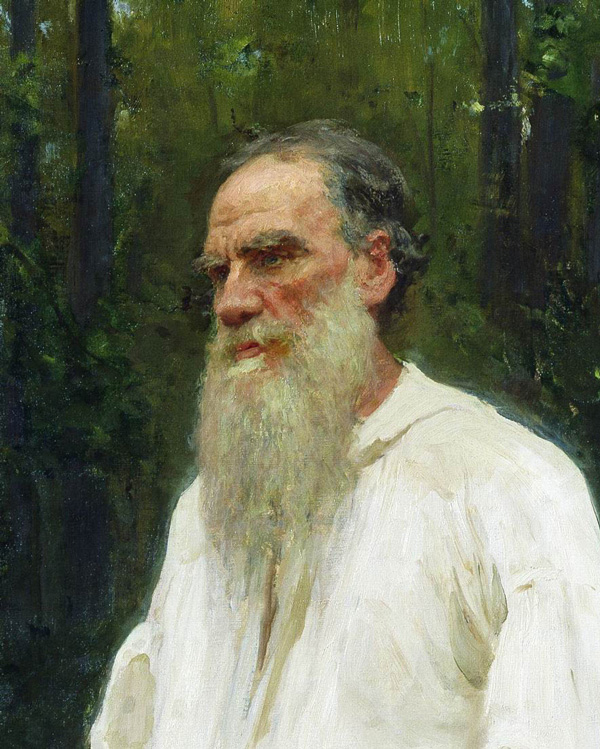 |
| Do not click. |
I refuse to read those lists requiring me to click from one page to the next to read. Whoever came up with that format ought to be shot.
Okay, that's extreme, so let me withdraw that comment and reformulate it: should be shot twice.
Years ago an editor of mine criticized a piece I wrote: "It's just words." Words symbolizing nothing. Ah, we could liberally scatter his criticism abroad today.
As you might have guessed, this is nothing new. There is nothing new. We could create a clever saying about that and use it til we're in a stupor.
There, that's enough of a useless lead-in to my point: Leo Tolstoy, the great Russian writer, found himself creating his age's version of the listicle. The incomparable Maria Popova finds this passage in Tolstoy's A Confession.
"We were all then convinced that it was necessary for us to speak, write, and print as quickly as possible and as much as possible, and that it was all wanted for the good of humanity. And thousands of us, contradicting and abusing one another, all printed and wrote — teaching others. And without noticing that we knew nothing, and that to the simplest of life’s questions: What is good and what is evil? We did not know how to reply, we all talked at the same time, not listening to one another, sometimes seconding and praising one another in order to be seconded and praised in turn, sometimes getting angry with one another — just as in a lunatic asylum."Ah, the echoing babblings of an asylum.
"It was terribly strange, but is now quite comprehensible. Our real innermost concern was to get as much money and praise as possible. To gain that end we could do nothing except write books and papers. So we did that. But in order to do such useless work and to feel assured that we were very important people we required a theory justifying our activity. And so among us this theory was devised: “All that exists is reasonable. All that exists develops. And it all develops by means of Culture. And Culture is measured by the circulation of books and newspapers. And we are paid money and are respected because we write books and newspapers, and therefore we are the most useful and the best of men.” This theory would have been all very well if we had been unanimous, but as every thought expressed by one of us was always met by a diametrically opposite thought expressed by another, we ought to have been driven to reflection. But we ignored this; people paid us money and those on our side praised us, so each of us considered himself justified."I'm going to write "Tolstoy's Six Self Criticisms" to explore this further. Hope you'll click along.
No comments:
Post a Comment